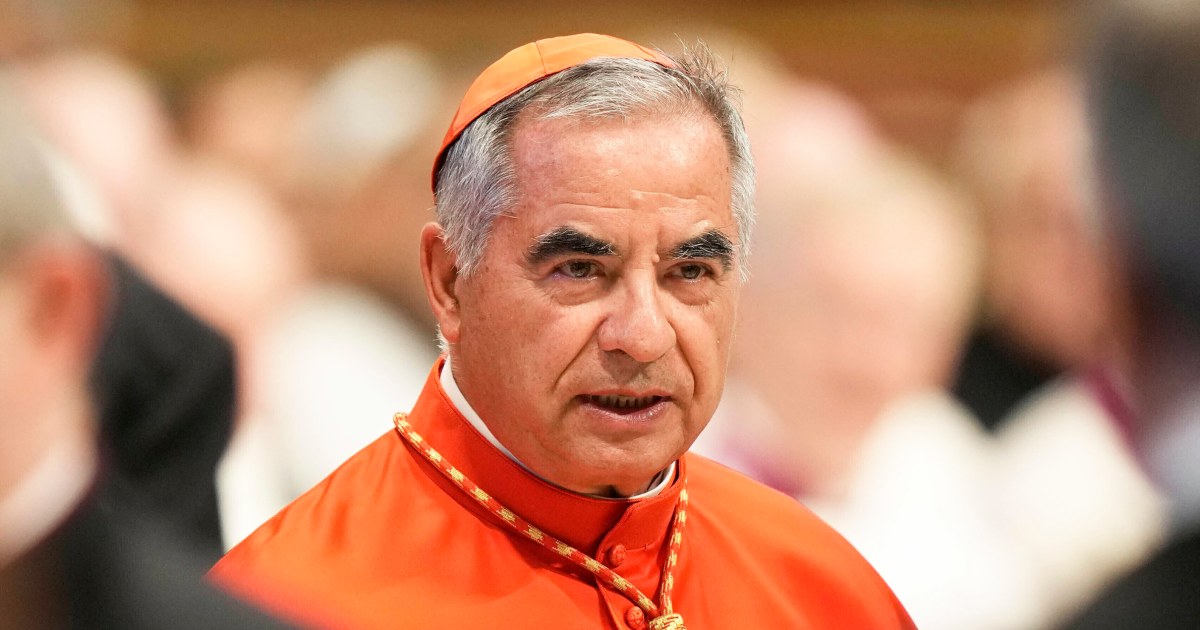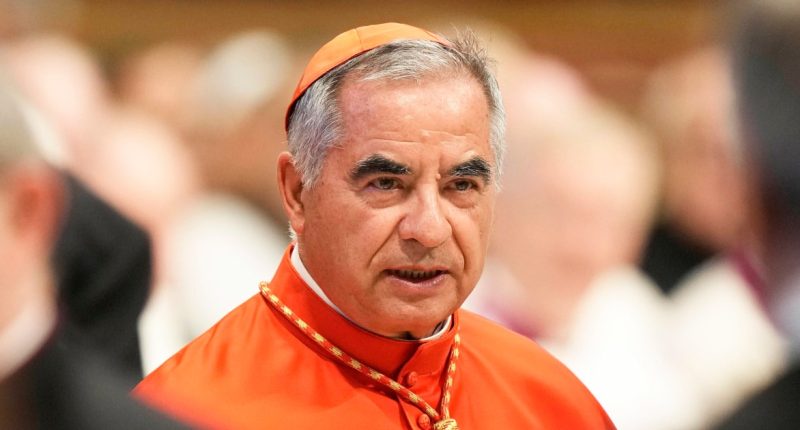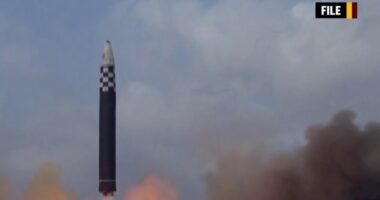
The defense attorneys did praise Judge Giuseppe Pignatone’s even-handedness and said they were able to present their arguments amply. But they lamented the Vatican’s outdated procedural norms gave prosecutors enormous leeway to withhold evidence and otherwise pursue their investigation nearly unimpeded.
Andrea Tornielli, the Vatican’s editorial director, said the verdicts showed the defense had ample space to present their case and that the defense rights were respected.
“The outcome of this trial tells us that the judges of the tribunal, as is right, acted with full independence based on documentary proofs and witnesses, not pre-confectioned theories,” he wrote in an editorial in Vatican News.
Prosecutors had sought prison terms from three to 13 years and damages of over 400 million euros to try to recover the estimated 200 million euros they say the Holy See lost in the bad deals.
In the end, the tribunal acquitted many of the suspects of many of the biggest charges, including fraud, corruption and money-laundering, determining in many cases that the crimes simply didn’t exist.
But it nevertheless ordered the confiscation of 166 million euros from them and payment of civil damages to Vatican offices of 200 million euros. One defendant, Becciu’s former secretary Monsignor Mauro Carlino, was acquitted entirely.
The trial was initially seen as a sign of Francis’ financial reforms and willingness to crack down on alleged financial misdeeds in the Vatican. But it had something of a reputational boomerang for the Holy See, with revelations of vendettas, espionage and even ransom payments to Islamic militants.
Much of the London case rested on the passage of the property from one London broker, Raffaele Mincione, to another in late 2018. Prosecutors allege the second broker, Gianluigi Torzi, hoodwinked the Vatican by maneuvering to secure full control of the building that he relinquished only when the Vatican paid him off 15 million euros.
For Vatican prosecutors, that amounted to extortion. For the defense — and a British judge who rejected Vatican requests to seize Torzi’s assets — it was a negotiated exit from a legally binding contract.
In the end, the tribunal convicted Torzi of several charges, including extortion, and sentenced him to six years in prison. Mincione was convicted of embezzlement for the original London investment but was absolved of, among other things, of inflating the cost of the building when the Vatican bought into it.
It wasn’t clear where the suspects would serve their time, if the convictions are upheld on appeal. The Vatican has a jail, but Torzi’s whereabouts weren’t immediately known and it wasn’t clear how or whether other countries would extradite the defendants to serve any sentence.
The former heads of the Vatican financial intelligence agency, Tommaso di Ruzza and Rene Bruelhart, were absolved of the main charge of abuse of office. They were convicted only of failing to report a suspicious transaction involving Torzi to prosecutors and fined 1,750 euros apiece.
They had argued they couldn’t tip off Vatican prosecutors to the transaction because they had initiated their own cross-border financial intelligence-gathering operation into Torzi after Francis asked them to help the secretariat of state get possession of the property.
A Vatican official, Fabrizio Tirabassi, was convicted of extortion along with Torzi and a money-laundering charge. The Vatican’s long-time financial adviser, Enrico Crasso was convicted of several charges including embezzlement and sentenced to seven years in prison.
The original London investigation spawned two other tangents that involved the star defendant, Becciu, once one of Francis’ top advisers and himself considered a papal contender.
Prosecutors accused Becciu of embezzlement for sending 125,000 euros in Vatican money to a Sardinian charity run by his brother. Becciu argued that the local bishop requested the money to build a bakery to employ at-risk youths and that the money remained in the diocesan coffers.
The tribunal acknowledged the charitable ends of the donation but convicted him of embezzlement, given his brother’s role.
Becciu was also accused of paying a Sardinian woman, Cecilia Marogna, for her intelligence services. Prosecutors traced some 575,000 euros in wire transfers from the Vatican to a Slovenian front company owned by Marogna and said she used the money to buy luxury goods and fund vacations.
Becciu said he thought the money was going to pay a British security firm to negotiate the release of Gloria Narvaez, a Colombian nun taken hostage by Islamic militants in Mali in 2017.
He said Francis authorized up to 1 million euros to liberate the nun, an astonishing claim that the Vatican was willing to make ransom payment to al-Qaida-linked militants.
The tribunal found both guilty and sentenced Marogna to three years and 9 months in prison.
Source: | This article originally belongs to Nbcnews.com









